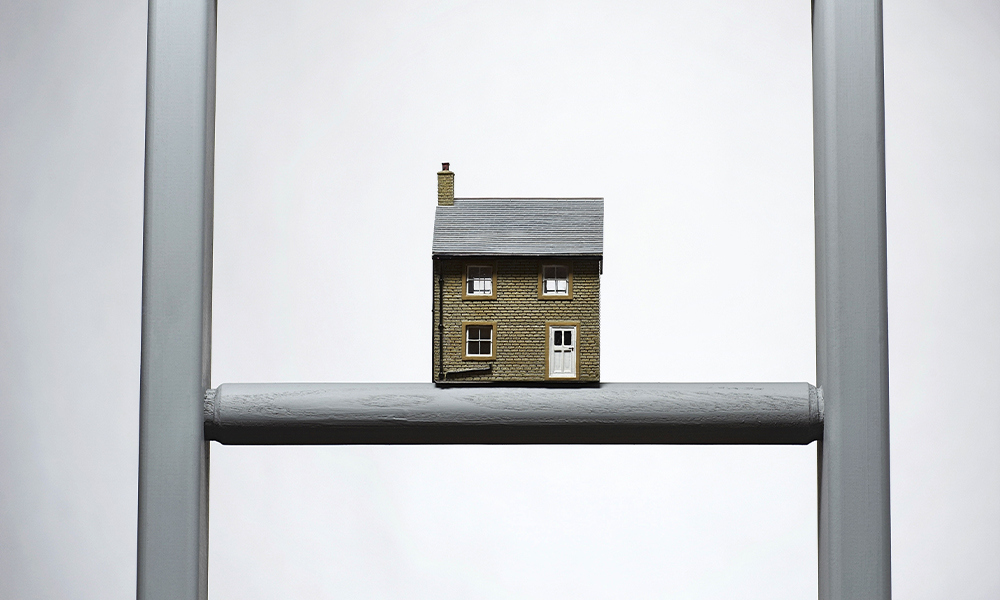If you’re thinking of selling your home, it goes without saying you’ll want to achieve a price that reflects its true value and enables you to take the next step in your property journey.
Finding out what that value is means getting your house valued by an estate agent.
In this guide, we’ll explain what you can expect from an estate agent’s valuation, how they reach their valuations and what they’ll be looking for in your home when performing their appraisal.
How do I get my home valued?
Getting a house valuation has never been easier.
Most agents offer a free initial online valuation that can give you a great idea what your property might be worth.
These valuations are usually based on basic property information, such as the property type, postcode, and number of bedrooms.
A full valuation of your property, where an agent will visit your home and undertake a full appraisal, is the best way to get an accurate picture of what your property could sell for on the open market.
How much does a house valuation cost?
Your local estate agent should offer a free valuation and appraisal of your home, but there are occasions when you may be charged for a valuation, including:
- For a valuation carried out by a Royal Institute of Chartered Surveyors (RICS) valuer
- For a valuation carried out by a mortgage lender
What is considered when valuing a house?
A huge number of factors are considered by an estate agent valuing your property, from its location and condition to its potential for development and how it compares with other homes in the area.
Your agent will soak up as much information about your home as possible when performing an appraisal and valuation, so you should prepare for questions on:
- Your windows and when they were last replaced
- The age of your boiler and its service history
- The ownership of your property and whether it’s leasehold or freehold
- The structure of the property and whether it’s had any issues in the past
Your estate agent will also look at these seven key things when valuing your property:
1. Your property’s kerb appeal
Kerb appeal refers to how attractive your property is when viewed from the street.
It’s estimated buyers
make up their mind about a home within a few seconds – so how your property looks from the road when your estate agent arrives for a valuation will have a big impact on their appraisal.
Top tips: Great ideas to boost your property’s kerb appeal
Improving your property’s initial appeal from the street can be done without the need for a huge budget.
You could:
- Freshen up or replace your front door
- Jet wash driveways and paths
- Paint or varnish your front fence and gates
- Keep your front lawn looking lush and neat
- Sweep away any rubbish or debris like fallen leaves from the road outside
- Clean your windows
- Add lighting to your front entrance
- Check your doorbell is working
- Hide your bins away
2. The condition of your property
An estate agent’s biggest asset is their eyes and much of their valuation and appraisal will be spent looking at the condition of your property, inside and out.
If a buyer would need to spend money on major improvements your property, this will often be factored into the agent’s valuation.
For example, a damaged or poorly maintained roof, or issues with damp, could result in a much lower value being placed on your property compared with similar homes without any problems.
Inside your home, the agent will look at its interior decorative order when assessing its value, including the condition of the walls and any wallpaper, flooring, and how modern the décor is.
Top tips: How to improve your property’s decorative order
If your property’s décor is feeling dated and you haven’t updated it for quite some time, doing so before your valuation is a great time to breathe new life into your home.
You could:
- Add a coat of neutral paint to your walls
- Replace any worn carpets or damaged flooring
- Add some crisp white paint to your skirting boards and architraves
- Replace any peeling or discoloured wallpaper
- Remove any clutter or large, under-used pieces of furniture
- Add more storage and hide away items like shoes and coats
“Fixtures and fittings are also a great way to quickly add value to your property,” says Rob Smith, Managing Director of Whitegates.
“Ensure these are all clean and intact – time to replace that cracked plug socket!”
3. Your home’s location and plot size
Your postcode and property location can have a big impact on your property’s valuation, so your estate agent will consider this when appraising your home.
How close your home is to convenient transport links like A-roads and railway stations, as well as which school catchment it lies in, will all be factored into your property’s valuation.
Your agent will also look at the size of the plot of land your property sits on and consider any environmental factors, such as flooding risk, that could affect how much it’s worth.
4. The type of property
Demand for certain types of property can vary from area to area, so your agent will consider this when valuing your home.
In some areas, there may be high demand for flats and apartments, while in others, large family homes may be more sought-after by buyers.
Your agent will also consider the age and character of your home when valuing it.
For example, Victorian homes may be in high demand where you live, or if more buyers are young families, more modern properties or new builds could command a higher value.
5. Rooms, layout, and outdoor space
While overall floor space in your home will play a part in its valuation, the value of UK properties is more often dictated by the number of bedrooms and reception rooms.
A large three-bedroom home, for example, could be worth less than a four or five-bedroom home even if it’s larger in terms of overall floor space.
Your valuing agent will also consider the layout of your property and how that compares with what buyers in the area are looking for.
A tight, odd layout in one home compared with an open-plan, spacious layout in another comparable property nearby could see those homes given vastly different valuations.
Outdoor space will also come into your estate agent’s thinking.
For example, if your target buyer is a large family, but your garden is small compared with the rest of your property, this could hinder its value.
6. Sale prices of comparable properties
As a benchmark for your own home’s value, your estate agent will look at sold price data and the condition of other comparable homes in your area.
This will help them consider how your own property compares to those sold within the past few months.
Your agent may also look at properties currently on the market that are unsold, considering the asking price and level of interest in those properties from active buyers.
7. Improvements and development potential
Making improvements and adding more space to your home are some of the best ways to add value.
Extensions, loft conversions and knocking down walls to create an open plan layout are great ways to set your property apart from similar homes in the area and attract keen buyers.
When valuing your home, your agent will look at any work you’ve already carried out and consider how this impacts what your property is worth.
The agent will also request to see any paperwork relating to work you’ve had done, ensuring any planning rules have been stuck to and confirming that the work was carried out to a good standard.
If your property has more potential for development, the agent will also factor this in to their valuation – for example, if you already have planning permission in place for a further extension of the property in the future, this could add considerable value to your home.
How to prepare your property for valuation
To help your estate agent assess your property’s value, you should take some steps to prepare for their appraisal:
- Clear away any clutter and make sure your home is clean and tidy
- Make sure your outside space is tidy and in good order
- Understand your reasons for wanting to sell, so you can explain this to your agent
- Get all your documentation together relating to any major work you’ve had done at your home
- Think about everything you want to ask the agent
“When getting your house valued, remember you do not have to take the offer there and then, so consider the agent’s report and findings first before you accept,” advises Whitegates Managing Director Rob Smith.
“We recommend you get your property re-valued at least once a year, too, to really reap the benefits of the housing market.”
Further reading…
- How you can improve your property’s EPC on a budget
- Everything you need to know about south-facing gardens
- Your ultimate house viewing checklis




